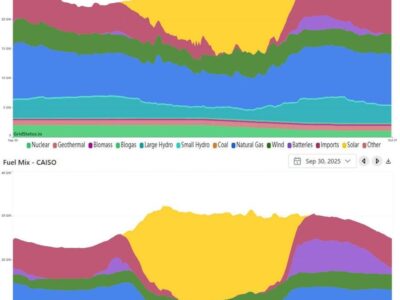Finally, some good news from Congress
The Senate voted 51-49 Wednesday morning against considering a resolution to repeal Obama-era regulations targeting methane emissions from oil and gas operations on federal lands. The Senate was considering whether to vote on rolling back the rule under the Congressional Review Act, which allows the Senate to repeal rules within 60 days of enactment. Three Republicans voted against the resolution: Sens. John McCain of Arizona, Susan Collins of Maine, and Lindsey Graham of South Carolina. It was already expected that Sen. Collins would not support the resolution, but also that the motion would still pass, possibly even through a tie-breaking vote from Vice President Pence.
This vote comes as a huge surprise to anyone who had been following the fate of the methane rule. The regulation, issued by the Bureau of Land Management, requires oil and gas companies operating on public lands to capture methane leaked from well sites and pipelines, gas that had previously simply been vented directly to the air or burned off, otherwise known as “flaring”. Several Democrats had refused to publicly commit to a position, including Sen. Joe Manchin of West Virginia and Sen. Heidi Heitkamp of North Dakota, leading to speculation that they would side with Republicans. In the end, no Democrat voted in favor of the resolution. The linchpin vote appears to have been Sen. McCain, who is also reported to have met with the bill’s sponsor, Republican Sen. John Barrasso of Wyoming, late last night to tell him he’d changed his mind.
As to why Sen. McCain may have crossed party lines, and why Heitkamp and Manchin did not, that is still unclear. McCain indicated hesitation based on the particular restrictions on future rules imposed by use of the Congressional Review Act, which prohibits the Executive from simply issuing a slightly different rule. Heitkamp may have faced pressure from constituents – the opposition to repealing the rule from farmers and ranchers in states with a lot of energy development had been growing. Wells on public lands are often out of sight for most Americans, except the farmers and ranchers living alongside them.
This is extremely good news. Methane gas is 25-40 times more potent than carbon dioxide in its warming potential, depending on the time horizon assumed. As a result, a small rate of methane emissions can have major implications for the climate. Preventing the unnecessary and wasteful release of pure methane from oil and gas drilling and processing equipment not only reduces those emissions, but also saves the taxpayer money in unpaid royalties. Given all the insanity coming out of Washington recently, this vote is a refreshing breath of common sense.
Reader Comments
3 Replies to “Finally, some good news from Congress”
Comments are closed.






Great post, Sarah. Question, though. Won’t Trump now just withdraw the rule and issue something weak or nothing at all?
Perhaps, but a withdrawal would be vulnerable to legal challenge, and it’s unclear how much of a priority this would be for the administration. Secretary of Interior Zinke said that BLM would continue to regulate methane venting and flaring even if the CRA passed, but since no one was really expecting it to get voted down, it’s unclear what Zinke will do to change it now.
Ann, the key (as I understand it) is that the CRA has an insidious provision: it would prevent any “substantially similar” rule from being passed, ever, in the future, without new congressional authorization. (For anyone reading who is interested, here’s an analysis: http://www.progressivereform.org/articles/Congressional_Review_Act_Primer.pdf )
The risk should probably have been reason enough for Obama’s BLM to refrain from issuing last-minute rules like this one, at least after they knew they would face a hostile president and Congress (the rule was issued on November 15 and BLM could have held it up).
So the CRA outcome would be way worse than having a new rulemaking process.
Here’s what McCain said:
“While I am concerned that the …rule may be onerous, passage of the resolution would have prevented the federal government, under any administration, from issuing a rule that is ‘similar,’ according to the plain reading of the Congressional Review Act,” McCain said in a statement. “I believe that the public interest is best served if the Interior Department issues a new rule to revise and improve the BLM methane rule.”